It is tempting to think of Dale Cooper as the hero of Twin Peaks. Certainly, I expect that we all love him. But he is a deeply flawed person, and while I’m not saying we shouldn’t love him, I do contend that through his hubris he basically broke time and messed everything up. He isn’t a hero, except perhaps in a tragic sense. Maybe Twin Peaks doesn’t have a hero at all, if by this we mean someone to root for as opposed to the central protagonist. But if it does, I think it is Major Garland Briggs.
Garland is by no means perfect. We see, for example, the way he smacks the cigarette out of Bobby’s mouth in Season 1, and—no matter your views on smoking—this kind of move in the direction of corporal punishment might trouble us. Briggs does seem like an old-school kind of guy, and so we might wonder how much of this kind of thing there has been in his relationship with Bobby, and to what extent it may have impacted the development of his son.
But the scene that sticks with me, and which I think might be the most significant in all of Twin Peaks, is the one that occurs after Leland has died—the one where Albert suggests that maybe BOB is just “the evil that men do.” And it’s Briggs here that stands out to me:
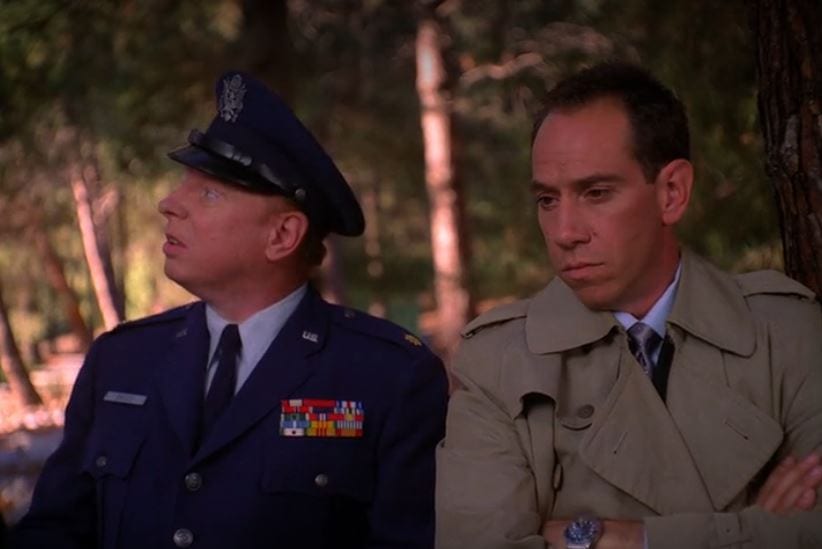
Briggs: An evil that great in this beautiful world, finally, does it matter what the cause?
Cooper: Yes, because it’s our job to stop it.
Briggs: Yeah… (walks away)
What Briggs recognizes in this scene is precisely what Cooper does not, and what will lead the latter down the path of perdition. Cooper thinks that evil can be stopped and its harm undone (as exemplified in his trying to undo the murder of Laura Palmer). He thinks that it is his job to stop it. Briggs on the other hand, as he says, “yeah…” and walks away, is recognizing that there is no undoing of trauma. There is no stopping it, but only at best a coping and working-through.
Perhaps there is harm mitigation, and this would seem to be how Garland understands his work. It is to understand what is going, to grapple with that in heaven and earth that goes beyond some everyday philosophy, and thus to try and make the world at least slightly less terrible.
I guessed that he was the Archivist of the Secret History fairly early on, as that action feels totally in line with his character. It’s a gathering of knowledge, and whatever you think of the book we can take this as fleshing out the character of Garland Briggs. He’s the kind of guy who would do this and look for others to carry on this work. Not because at the end of the day he thinks evil can be stopped, but because we need to know what we’re grappling with.
I’m not sure what to make of Cole’s claim that he, Briggs, and Cooper talked about a plan to find Judy, but I do think the ambiguity of the phrase is worth noting here. Perhaps they did have this conversation. Where to fit it into the timeline, after all, feels like the biggest issue, as opposed to the fact of its occurrence (did this somehow happen before Dale entered the Lodge, or was this maybe Mr. C they were talking to?). But if we take it as having happened, we can note a difference between wanting to find this extreme negative force to stamp it out (which I’m taking to be Cooper’s motivation) and wanting to find it to understand it (which I’m taking to be Briggs’s).
The former leads Cooper down a path that I’ve claimed fractures time itself, condemns Audrey to a liminal world, and does similarly to Dale himself, as he’s caught in a cycle he can’t seem to escape, torn between two worlds. Like Laura, who is dead and also lives, he both saved her and he didn’t. And the world in which he saved her is not the world in which he didn’t. He’s caught between them, and so is she. Deprived of her ending with the angels at the end of Fire Walk With Me, she’s now caught in a loop of whispering into Dale’s ear that her father killed her leading to his attempt to fight BOB and stop her from being killed, which splits them both and traps them in the Lodge interminably, even as they also have a presence outside of it.
Briggs, on the other hand, seems to have recognized what happened to Cooper after he entered at Glastonbury Grove in Episode 29. He faced the Lodge with imperfect courage. So when he comes to visit Garland afterwards, the latter recognizes that something is wrong. He recognizes that this is the Double, or Mr. C, as opposed to the Dale he has known. And though I have argued that this isn’t a metaphysical difference—Mr. C is Cooper—it is a difference in terms of the aspect of Dale who is out in the world.
But his goal of “finding Judy” remains the same. Mr. C wants the coordinates that will lead him to this extreme negative force. And you might think this is because he wants to harness it for nefarious purposes, but I’d contend on the contrary that this is the same aspect of Dale who felt warranted in going outside of FBI guidelines to achieve his goals in the original run. He’s after the same thing—to stop evil—but the ethical guide rails are gone.
Whereas he tells Audrey that what he wants and what he needs are two different things, with Mr. C it is all about desire, whether it is sexual or otherwise. Because when Cooper says that line he clearly means something in an ethical register when he talks about what he needs. As an FBI agent, he needs to uphold certain standards. It’s in the same sense that he’ll tell Gerard in Part 16 of The Return that he “needs” him to make another Dougie. He needs for Janey-E and Sonny Jim to not be alone, but not in the sense that one needs food.
But if Cooper wants to destroy Judy and undo Laura’s death, Briggs knows this is a bad idea. Let’s imagine that the meeting with Cole did take place with Mr. C. Perhaps Cole was there at that moment Bobby refers to, which is also gestured at in the Secret History. But Briggs feels that something is wrong; that in talking about finding Judy, Cooper is thinking to root that force out. Briggs senses this problematic shift in Cooper, and how he’ll now, as Mr. C, use whatever means he can to get what he wants.
That’s no good. Perhaps Listening Post Alpha would have been too much help to him, so Briggs destroys it. And he fakes his own death, instead entering the White Lodge to get away from Mr. C and think about what is to be done.
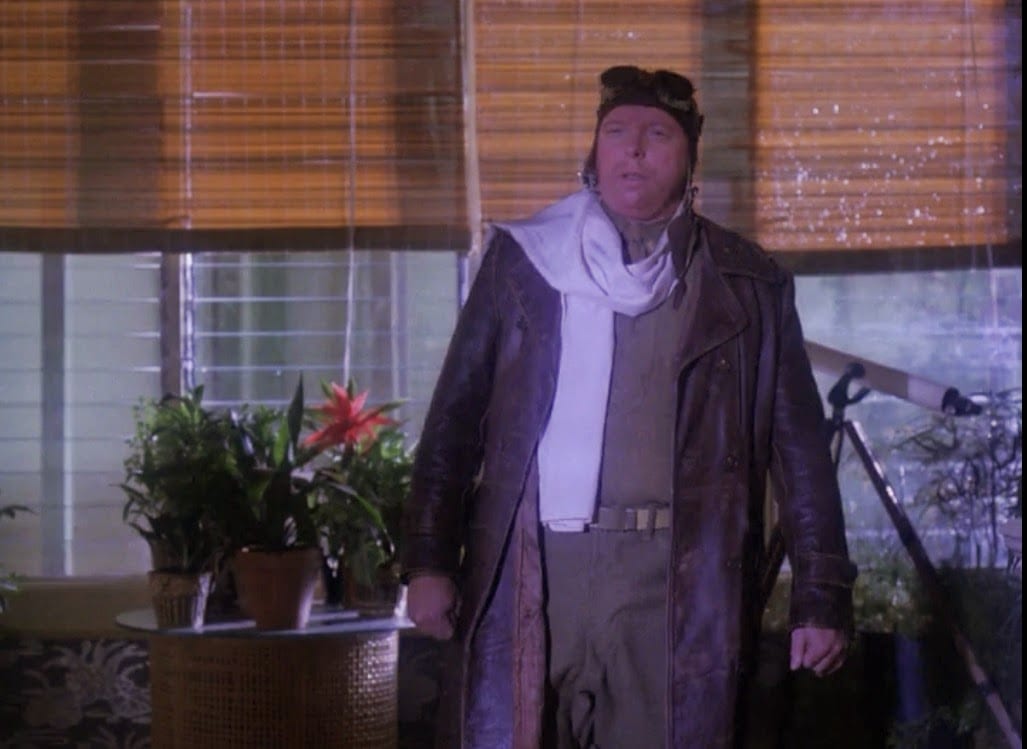
I don’t know if that’s a stretch. I’m presuming that Garland did indeed go to the White Lodge in the original run, and that he was already there into a process that led to further development of his abilities. Here, and with a lot of what follows, I am veering into the terrain of what some might almost call fan fiction. But the thing about Twin Peaks is that it gives us a story that is perhaps purposefully incomplete. If you want to make sense of it you have to fill in certain gaps and make certain inferences. That’s part of what is so great about it—this show requires interpretation. There is no passive viewing, or surface-level reading—not even in the original run, really. One has to think about how to put things together, or else just take the whole thing thematically. Which, that’s fine, too, and these approaches are not mutually exclusive.
So what happens with Briggs? What follows is my current interpretation, which could certainly change at some point.
After meeting with Mr. C, he goes to the Lodge. Over the course of 25 years, he intermittently interacts with the world to try to thwart Mr. C’s plans, or at least delay them. His fingerprints have been found 16 times. He knows the timeline when it comes to the “Good Dale” being able to exit the Lodge, and acts accordingly. More than anything, he hopes to reintegrate the aspects of Dale in a way that would cut off his attempt to find Judy, but unfortunately he fails.
As that all risks feeling a bit groundless, let’s approach things through a question: how did Dougie’s wedding ring end up in Briggs’s stomach?
This is a mystery that The Return poses early on and never really offers an answer to. We know that the wedding ring of Dougie Jones was in Garland’s stomach, but are left to speculate as to how it got there.
I’m taken by the idea that Dougie (the OGD) was an agent of Mr. C and controlled by him. He’s the one who was there for whatever went down with Bill Hastings and Ruth Davenport. And when Phyllis seems to recognize Mr. C, it’s because she has had some experience with the OGD.
Now, there are still big questions about what happened to Ruth and how her head and Briggs’s body ended up in her bed, which I’m not going to try to answer. But the core of my thought is this: that Briggs swallowed the ring precisely to put the FBI on the path of things should his Plan A go wrong. Knowing that the “Good Dale” might end up taking the place of Dougie Jones, as opposed to reintegrating directly with his Double, Briggs wanted to give a clue to the Blue Rose team.
So I’m imagining him, in one way or another, getting that ring off of Dougie and swallowing it to provide such a clue. Further, I’m thinking that the wedding ring perhaps created a link between the OGD and Mr. C that Briggs hereby severed, and that he replaced it with the Owl Cave Ring, though I’m not sure where that thought might lead.
Regardless, on this interpretation, Briggs was not killed. He moved towards the Lodge in the same sort of way as we’ve seen the Woodsmen do: head first. But he left his body behind for the Blue Rose folks to find. (As for Ruth? I don’t know. Some of these questions are going to remain open.)
And find it they do, which leads to the ultimate reunion with Cooper and his reintegration with his doppelganger, Mr. C. When the latter finally finds the place, we see not only The Fireman, but the head of Briggs there, and they redirect him to the Sheriff’s station. That wasn’t where he wanted to go. He wanted to go to the Palmer house.
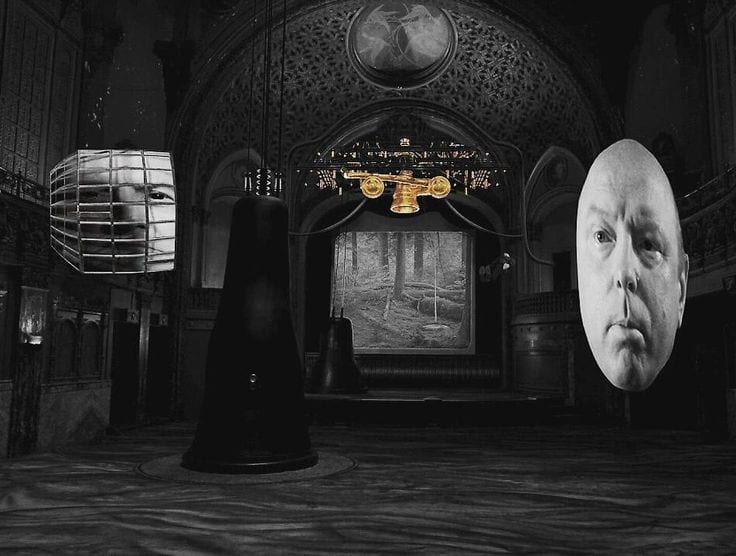
This forces the showdown we see in Part 17, and while it may not be ultimately a showdown between these aspects of Cooper, I think that might be what Briggs wanted. Instead, Lucy shoots Mr. C, and there is the (apparent) destruction of BOB.
But that’s not the question so much as the one about Cooper and which aspect of himself might win the day. And this is not straightforward. I would suggest that Briggs wanted the “Good Dale” to win out, but that this doesn’t happen. But to flesh this out we first need to take a step back and examine what I think was Plan A.
Blue Rose
Recall that when the “Good Dale” leaves the Waiting Room, he goes to a space that many have come to call the Mauve Zone (I think this is all the Lodge, by the way—more on that later). Here he meets Naido, who it seems can’t see, and can’t properly speak. Dale is drawn to this woman in trouble and follows her, I think, because of this. He has that “White Knight complex” going on.
So he follows her up out of the thing that I originally called the Eraserhead Spaceship and watches her flip a lever before falling into space. In the meantime, Briggs’s head floats by and utters the words, “Blue Rose.”
Now we know that Blue Rose is not just the name of a set of cases Gordon Cole is interested in, nor just the name of the team he has set up to investigate those cases. It all apparently started with the Lois Duffy case, which involved a doppelganger. So there is something intrinsic about the idea of the Blue Rose and that, or so it would seem.
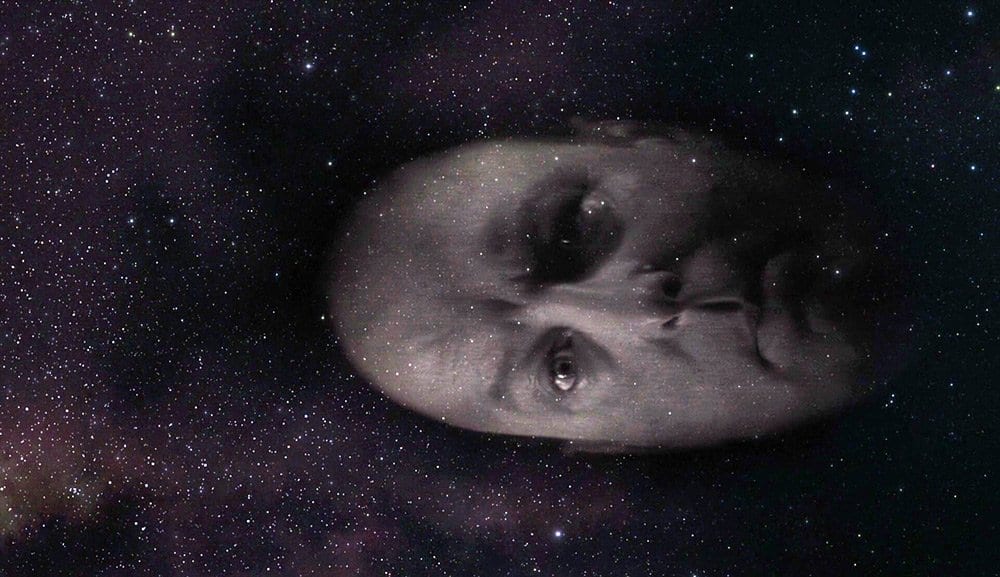
Why, then, does Briggs say these words to Dale as he floats on by? My hypothesis is that it is as a warning. Naido is not what she seems. Dale is being tricked. And whether or not he knows, or senses, the connection with Diane, Briggs is trying to warn him that this is wrong. He should have gone through the outlet before Naido flipped the switch. Then he would have taken the place of his Double. This is all a trick predicated on him accepting the advice of this woman who appeals to his desire to help.
When he goes back in, we get another Double: American Girl, who is played by the same actress (Phoebe Augustine) as Ronette Pulaski, which leads me to think that she is perhaps Ronette’s doppleganger. Regardless, this means that Dale recognizes her, in a sense, and is led to follow her advice. But the whole thing is a set-up, leading him to take the place of Dougie Jones instead of Mr. C.
Briggs tried to cut this off, but he failed. He’s basically become a Lodge-being, so he can only communicate cryptically. He tells Dale, “Blue Rose” and hopes that he’ll get it, but he does not.
And Naido is not Diane. She is only ever the Double of the same, luring Cooper into something that is ultimately bad for him, and the world. We never see the original Diane. It’s not for nothing that when Naido becomes her in Part 17, the colors of the Waiting Room are starkly evident.
Darkness Cannot Drive Out Darkness; Only Light Can Do That
So all of this fails, which leads to the carrying out of Plan B. Part of what I think makes Garland Briggs the potential “hero” of Twin Peaks is that he even has a Plan B. We can’t stop the evil, but what can we do to mitigate the disaster?
Not what Cooper’s doing. Cooper has become the problem. He’s trying to drive out hate with hate, and you can’t do that. Only love can do that.
Windom Earle: Garland, what do you fear most…in the world?
Major Briggs: The possibility that love is not enough.
Cooper’s damage has to be mitigated. As he’s moved to “stop evil” and “undo trauma” he has aligned himself with very questionable forces. Gerard told us in the original run that he was now against BOB, but in Fire Walk With Me we see him align with The Arm as the latter places his hand on his stump and they declare together, “BOB, I want all of my garmonbozia.” The Giant and The Arm appear in Episode 29 together and say, “One and the same.”
My take is that it is one and the same—that the White Lodge and the Black Lodge are, I mean. It depends how one takes it, or how one responds. Dale responds with “imperfect courage”—his fear of losing Annie, and the link with what happened with Caroline, overtakes those aspects of Dale that we had perhaps previously thought meant he would conquer all evils.
Cooper fails, but keeps trying even though he fails again. And he keeps trying even though he makes things worse. We can love him for that. We can forgive him for that. And I do those things, but that doesn’t change the tragic nature of his story.
Briggs, on the other hand, sees the truth of things. There is no going home again. There is no undoing of the trauma that has been wrought by the world. The best we can do is to try to mitigate, cope with it, and move through it as an aspect of human existence.
Cooper’s actions threaten the fabric of spacetime itself, so Briggs has partnered with The Fireman to keep this from happening. This is Plan C. As Cooper persists in his plan to save Laura, it is The Fireman who whisks her away in the woods. And it is the words of the same that lead Cooper to cross over into the world where he finds Carrie Page. This isn’t a trap universe for Judy, as some have suggested—it’s a trap universe for Cooper. Because he thinks that by bringing Laura/Carrie home he can fix things. But Sarah is not there. The Palmers are not there. What year is this?
He’s condemned, then, to go back into the Lodge and try again. Again Laura whispers in his ear that her father killed her, and he gasps because he thought he’d stopped that from happening. But he couldn’t. The reality of that trauma is not something that can be erased, even if through his actions there came to be another reality where it didn’t happen.
He’s caught in a loop, and so is Laura. Audrey is caught between two worlds. But that’s better than the destruction of everything, which I posit that Cooper’s actions risk. The paradox threatens reality, like the splitting of the indivisible (atom). It unleashes forces beyond our control. There is more in heaven and earth than our philosophy, and it is hubris to think otherwise.
But perhaps we can stave off catastrophe. Perhaps love is not enough to drive out the forces of hate and darkness once and for all. Perhaps there is no stopping evil. But love is also all we have, and maybe it is enough to keep things manageable. We can’t stop trauma, but perhaps we can learn to live with it if we love and understand each other. And maybe that’s the best we can do.
I think this is the lesson that Garland learned from the White Lodge. Love and fear open the door, but if it’s fear, well…you’re gonna be in trouble like Dale. If it’s love, that doesn’t mean you’re going to be able to solve all of the problems in the world. That’s not what love is about. It’s the vision that Garland tells Bobby about, which it seems never came to pass. But that’s not the point. The point is about a father loving his son.
And this is the lesson that Garland learns: love may not be enough to solve the world’s problems, but it is enough to provide life meaning, and it is what needs to be fought for.
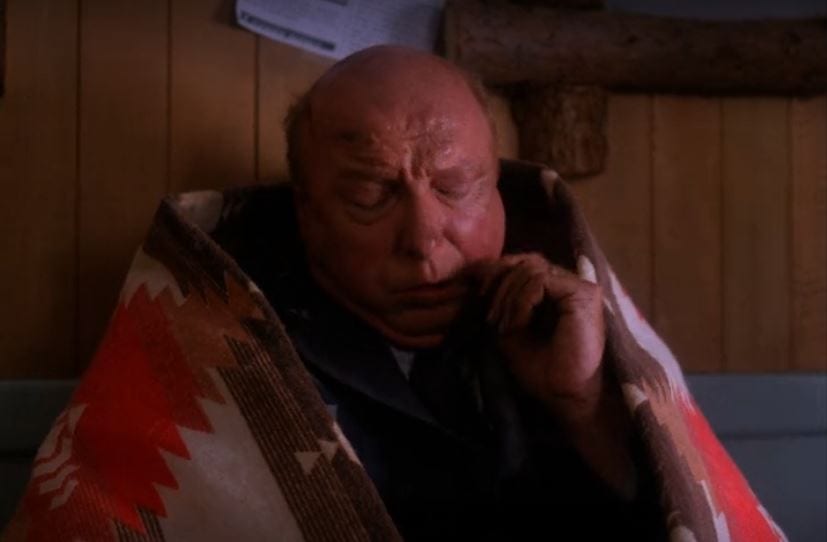
Is this meant for the soul? My soul?
Yes.

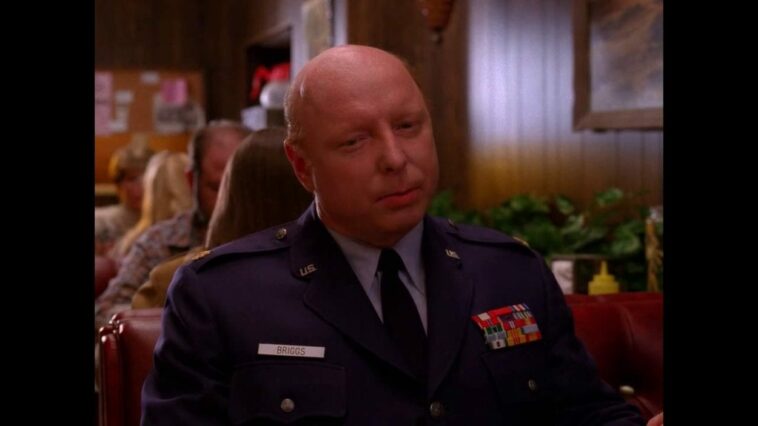
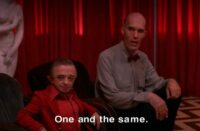
I love every word in this piece.
So very resonant.
Thanks!
Came across this while I was looking thru google images for the Briggs floating head in the black lodge still. I’ve never watched a single “explained” video or anything about twin peaks or any other film/movie/book/show for that matter, but couldn’t stop reading this.
Great stuff
Thanks!